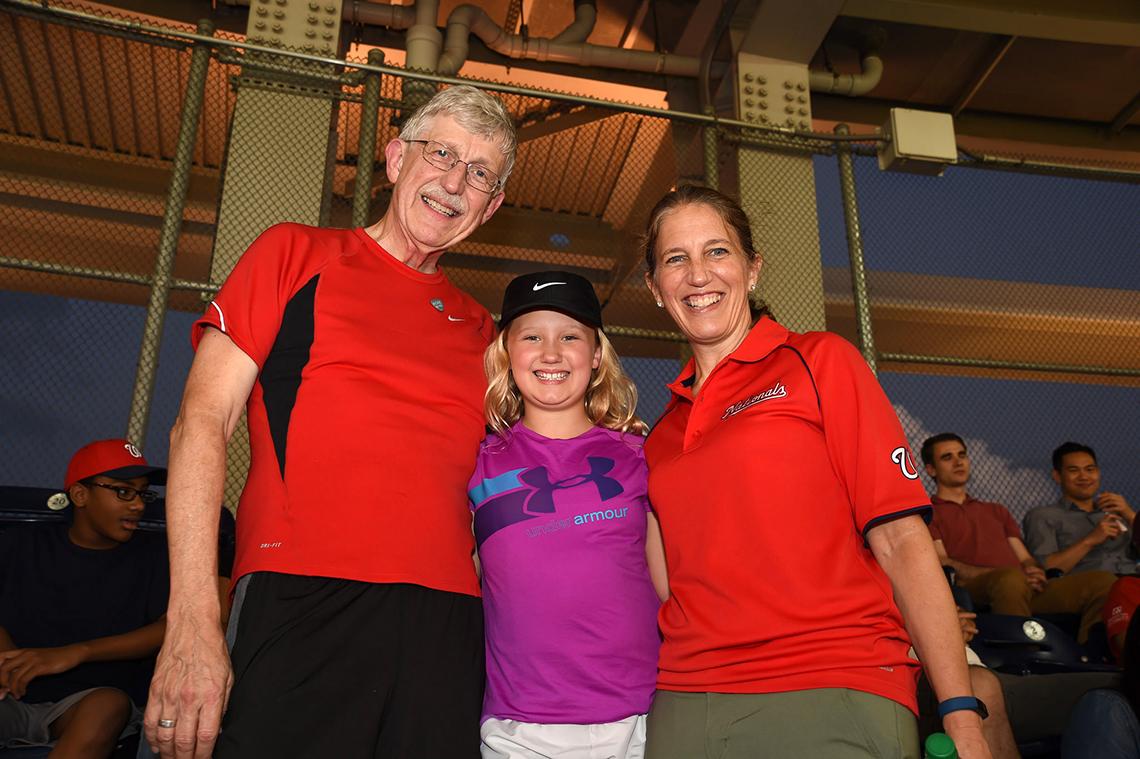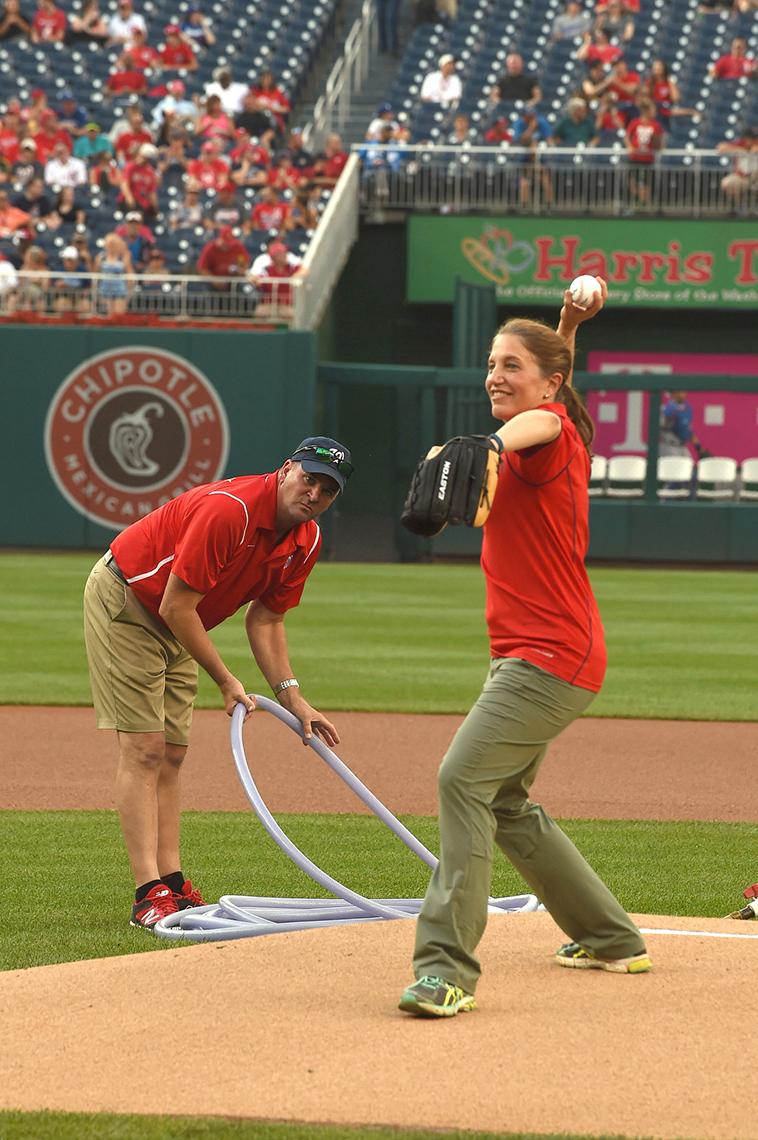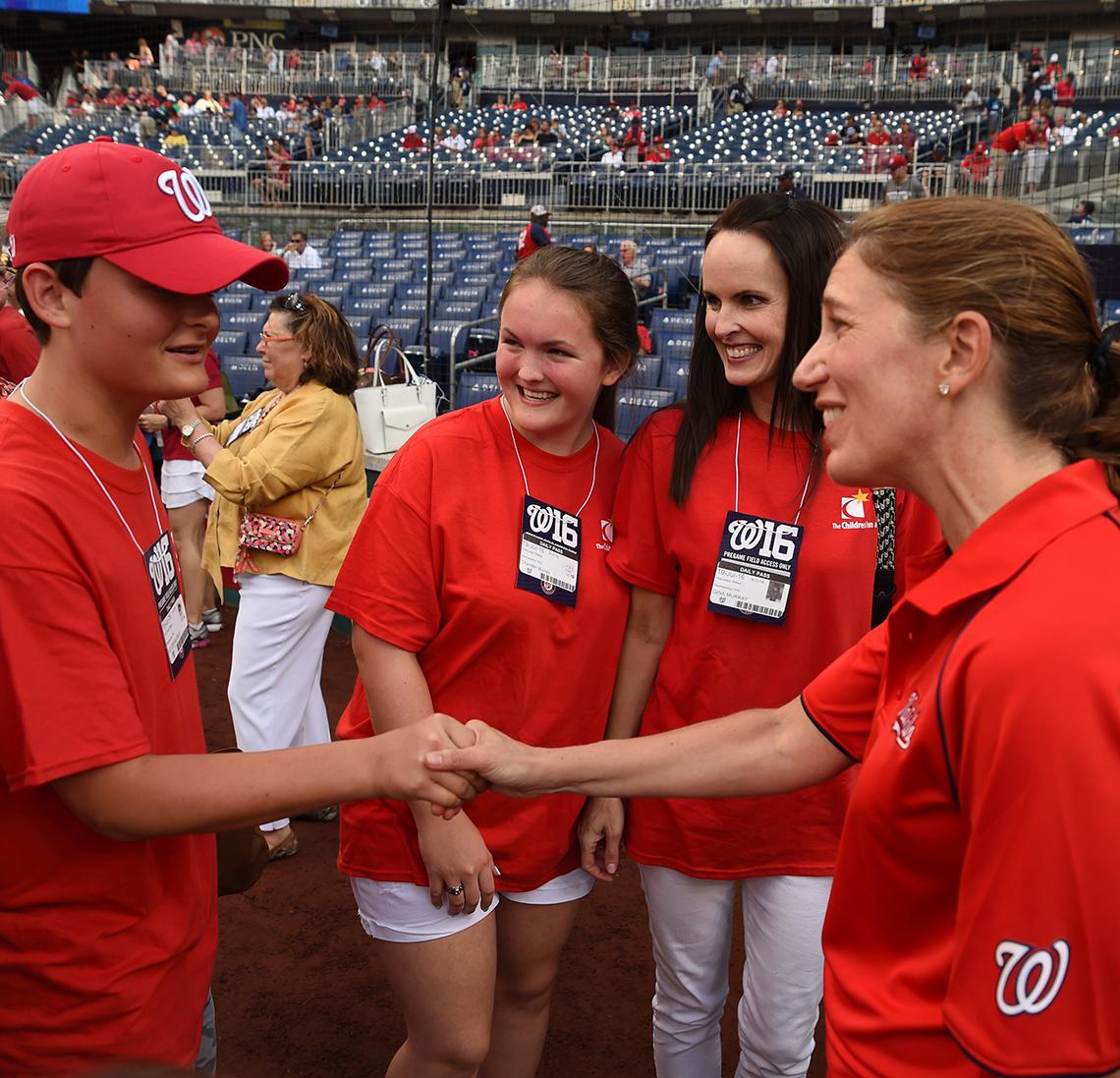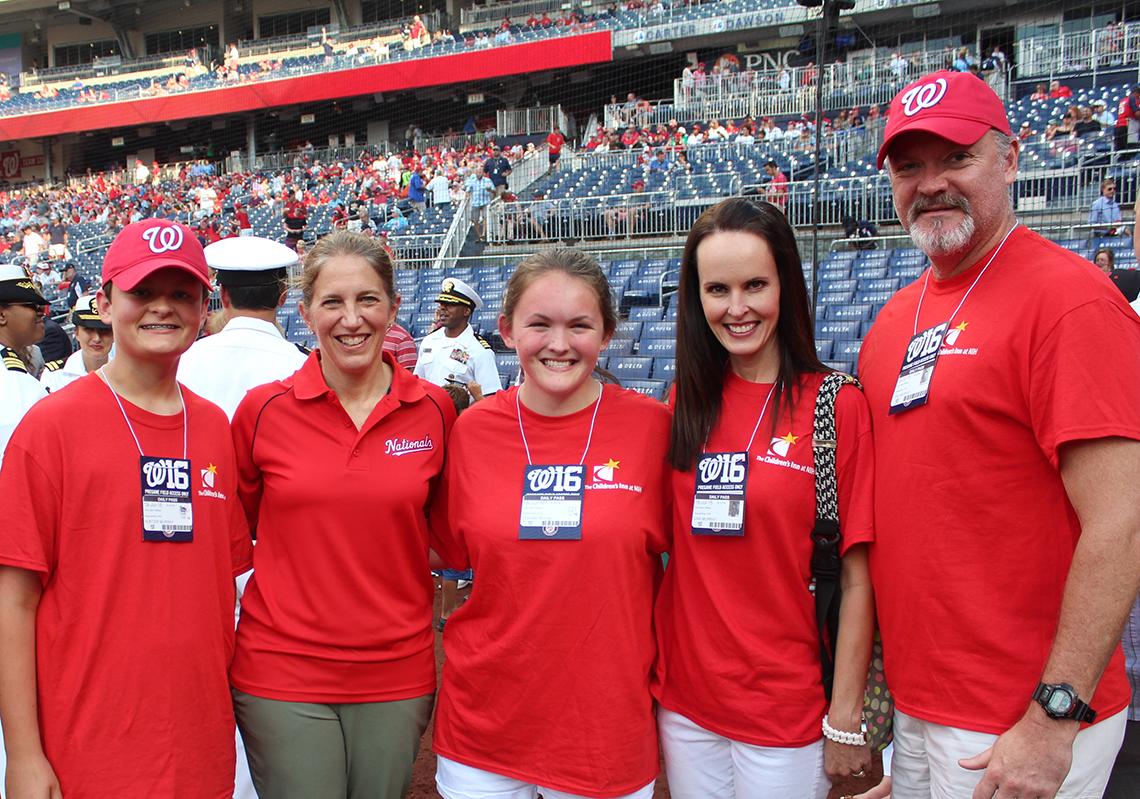‘Night at Ballpark’ Proves Boon to Patients, Family
The Murrays from Mississippi know more about pediatricians than they do about pitchers. For the past decade, the family of four has been coming to NIH to participate in studies of a rare adrenal disorder. Common family outings, like sporting events, aren’t so common for them. Dad, Christian, and mom, Gina, their two children, Chandler, 16, and Hunter, 12, had never been to a major league baseball game. Until HHS Night at the Ballpark on July 19 at Nationals Park in Washington, D.C.
“We are so excited,” said Gina, decked out in a red Ks for Kids shirt outside the Children’s Inn at NIH as she and her family left for the game.
Hunter, whose illness limits his sports activities, eagerly climbed atop the dugout for his big announcement over the PA system. He had been practicing, he said.
“It’s time for Nationals baseball. Let’s play ball,” Hunter bellowed, dragging out the last word.
Team mascot Screech gave him a fist bump—the first of many from fans and Nationals staff. All the way to his seat, Hunter was greeted with high-fives and kudos.
The Nationals ended up losing to the Los Angeles Dodgers, but more than 5,000 HHS employees, including NIH director Dr. Francis Collins, attended the game.
Asked what they enjoyed most about the game, Hunter and Chandler chimed together, “Everything.”
They both participate in studies conducted by researchers at the National Institute of Child Health and Human Development. These studies aim to evaluate potential treatments for congenital adrenal hyperplasia, a rare disorder in which the body does not produce the hormone cortisol. Cortisol affects energy levels, blood sugar, blood pressure and the body’s response to stress, illness and injury.—Meredith Carlson Daly




